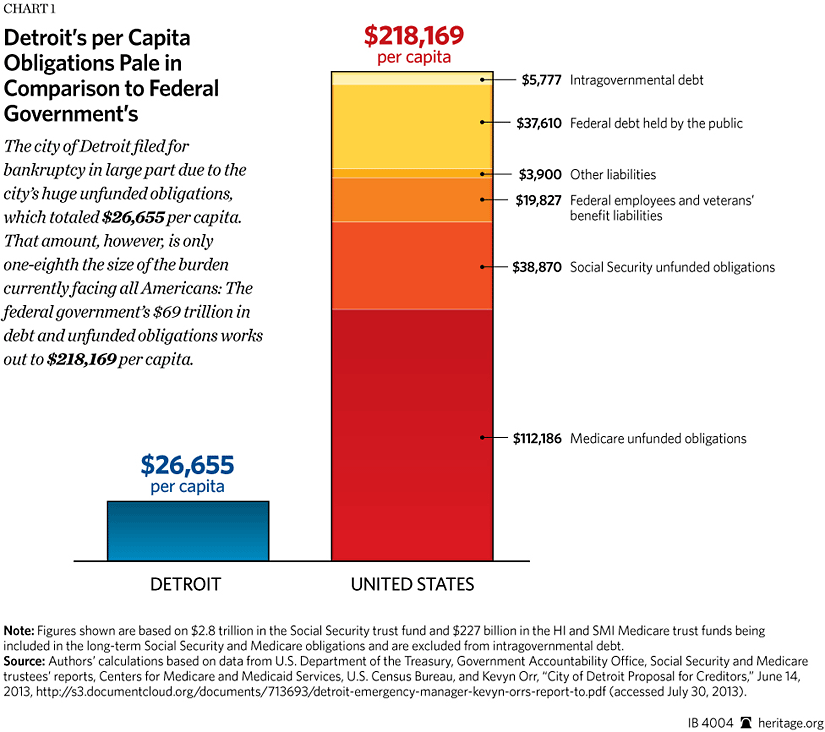Detroit is the poster child for economic decline. The city’s policies and politics over the past half-century should serve as a “do not” guide for policymakers across the country.
There’s a great deal lawmakers in Washington can learn. The first is understanding that Detroit’s demise was the result of big-government, liberal policies promoted by self-interested politicians and coercive public employee unions.
>>> New Report: Detroit’s Bankruptcy Marks the Tip of the Iceberg
In the wake of America’s manufacturing decline, Detroit enacted policies that drove out businesses and residents. Rather than reduce the size of government as its population shrank, the city instead sought higher levels of government spending. City leaders acquiesced to unions by increasing employee benefits and ceding control and flexibility over employees.
To pay for it, Detroit continually increased taxes and engaged in prolific borrowing when the tax increases did not close the gap. And yet, despite the growth in government taxes and debt, Detroit’s citizens experienced ever-declining city services, the most troublesome result of which has arguably been the steep rise in crime.
A federal bailout of Detroit is not the answer.
If Congress were to step in to protect any of Detroit’s creditors—be they pensioners or bondholders—it would create an untenable moral hazard. Believing that the federal government would step in to help them, troubled state and local governments across the nation would have no incentive to enact reforms, and unions and workers would have no incentive to accept them.
>>> Read More: Detroit Today, Illinois Tomorrow
Moreover, a federal bailout of Detroit or any state or local government would impose the costs of one city’s fiscal recklessness on the taxpayers of other, more responsible states and localities.
Perhaps most important, though, the federal government is in no fiscal position to be providing bailouts.
As significant as Detroit’s debt is, the federal government is in far worse shape. In fact, as the chart above shows, the federal government’s debt and unfunded obligations are more than eight times that of bankrupt Detroit.
Detroit’s spiraling decline is a tragedy. Lawmakers in Washington should learn from Detroit’s mistakes and rein in big government now before it’s too late.
Quick Hits:
- Heritage President Jim DeMint was on “Fox News Sunday.” Watch the TV clip.
- 19 embassies and consulates in the Muslim world will stay closed through next Saturday.
- Before heading home for recess Friday, the House voted 232-185 to block the IRS from enforcing Obamacare.
- Not so fast: Congress is still in an Obamacare trap.
- Just one person showed up for a pro-Obamacare event in Virginia.
- Another state pulls out of Common Core.
- You’ve been warned: Flashing your headlights may result in being charged with obstruction of justice.
- Most Americans support ‘Stand Your Ground’ laws.
- The New York Times sold the Boston Globe for a 93 percent loss.


























